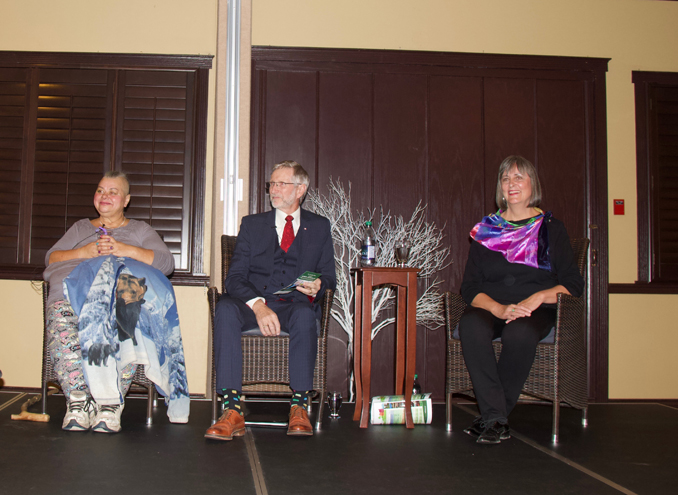Mayor's Question: Rental Housing
This is not a normal election in Nelson. But neither are these normal times.
Cannabis is now legal. Hall Street Stores to Shores continues. There’s a non-partisan, grassroots coalition of concerned citizens in play for this election that has endorsed a group of candidates for City Council.
And the rematch of 2014 between incumbent Mayor Deb Kozak and challenger John Dooley is no doubt ready to go down to the wire when voters go to the polls Saturday.
Bernie Brown, who declined to participate in The Nelson Daily Question series, is the other mayor candidate on the ballot.
The Nelson Daily has put the mayoral candidates on the spot with its weekly question series. In this final installment on the eve of voting, the question deals with rental housing in the Heritage City.
Question:
Do you believe the short-term rental regulations are strong enough inthe city, and do they do anything to preserve and grow the long-term rental stock in the city?
Deb Kozak
Nelson was one of the first communities in BC to develop short term accommodation regulations to protect long term housing. The regulations were developed in consultation with hoteliers, residents and homeowners who offer AirBnB type accommodation. The regulations restrict where and how many short term rentals can operate in a neighbourhood and have been in effect for just over a year. Council recently reviewed the regulations and made some minor improvements. The bylaw has been effective and is working in the way it was intended.
The short term accommodation bylaw is part of a larger picture of how Nelson will continue to grow and retain rental stock. Council is currently working with Selkirk College to build student housing at the Rosemont Campus. Kootenay Christian Fellowship has a 100% subsidy from BC Housing to build 39 units of affordable rental. And Nelson CARES is building 47 units of seniors housing near Lakeside Park. We anticipate an affordable housing development to come forward for 205 Hall Street. Add to that, a 75% reduction in water and sewer rates for suites in homes and the ability to build laneway housing, all part of the plan to create, retain and build more affordable rentals. Nine of the fourteen recommendations in the Affordable Housing Strategy have been completed with the remaining six to be spearheaded by community agencies. There is also growing interest in the business community to create employee housing and people are realizing this is a regional issue.
There is more to come as Nelson grapples with our growing popularity. We have a compassionate and caring community working with council to create and retain affordable housing.
John Dooley
The intent behind the short-term rental regulation by Council is good; rather than fighting a losing battle against a form of accommodation that is clearly in demand, the City chose to take steps towards legalization. Whether or not the creation of these regulations is growing the long-term rental stock in Nelson remains to be seen. Nelson still has one of the lowest vacancy rates in the province.
I do believe there has to be a reasonable compromise between allowing short-term rentals without unreasonably removing potential long-term affordable housing stock in the City. Council must first decide the principles under which they will frame their policies. For example, if the priority is to increase affordable housing in the City, then they would need to limit short term housing opportunities in those situations that could potentially be offered for long term housing. By limiting STRs to a person’s principal residence, you encourage home sharing. Many people need the short-term rental space periodically through the year for their own families or friends, and thus would not be renting them for the long term.
Short-term rental operators may also need help with affordability. I believe that the conversation about rentals needs to be part of a bigger discussion about housing in general. There are a multitude of strategies and questions to be considered if we truly want to impact affordability and accessibility, including:
- Are the processes for people who wish to build short-or long-term rental accommodations easy to understand and implement?
- Are our laneway housing bylaws truly about creating more affordable housing, or should they be more prescriptive in terms of size and cost?
- How can the City facilitate and lead strategies that make this a win-win situation for homeowners and renters?


























